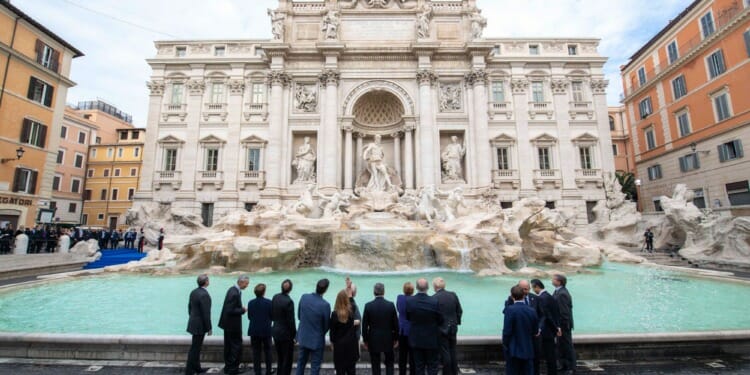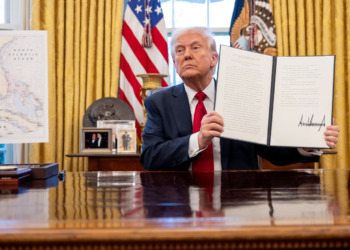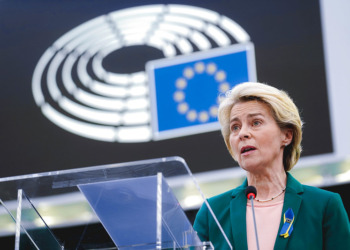World leaders are running out of time to make a climate breakthrough. A few days before the G20 Summit in Rome and the COP26 in Glasgow, the UN panel of climate experts, the UNPCC, warned in a stunning report, The Emissions Gap Report 2021: The Heat is On, that the world was headed towards a 2.7° increase in global average temperatures by the end of the century – if the present trajectory of business-as-usual didn’t change. This particular prediction is based on what the signatories of the Paris Climate Agreement had signed on to, using their combined updated Nationally Determined Contributions (NDCs).
In short, the G20, the so-called “club of the richest nations”, stands warned: Business-as-usual will lead us to near-extinction as a species (along with most others) by the end of this century – this outcome can be laid at the doorstep of both the fossil-fuel industry and finance.
So, unquestionably, the heat is on world leaders, especially those of Europe, the U.S. and China, universally seen as the main culprit of climate change – the former two as the birthplace of the industrial revolution in the past, the latter as the current world factory.
The overlap between the end of G20 and the start of COP26 on the same Sunday 31 October could not have failed to cause more than logistics problems for world leaders attending both events: It meant that COP26 would start without having digested whatever would be in the G20 communiqué about the climate. In a very real sense, the G20 is a “crash test” for COP26: Rome is a prelude of what will happen in Glasgow.
And, as a prelude, it turned out to be a dismal one. President Biden summed it up well, saying Russia and China “basically didn’t show up in terms of any commitments to deal with climate change.” These two, and Saudi Arabia, have “not done enough” – a diplomatic way of saying they’ve done nothing.
In the video: The second day of the G20 Summit in Rome started with a walk of the Heads of Delegation in one of the symbolic places of historic downtown: The Trevi Fountain.
As shown in the video above, the main players at the G20 are the US with President Biden attending in person along with most European leaders including the EU Commission head Ursula von der Leyen, as well as President Modi of India. Notably, among the big players, the leaders of both China and Russia are absent – they have declined to attend and are participating remotely via video links to both the G20 and COP26 events: Not useful as there’s hope to operate change at such events only if the leaders are willing to participate in person and interact with their peers.
Personal interventions can make a difference as can be readily shown by the result achieved by a couple of bilateral meetings President Biden had with the French president and with the EU Commission leader. The first, with Macron, took place before the start of the G20 event on Friday and led to a French-U.S. détente over the AUKUS row. The second, with Ursula von der Leyen, took place during the G20 and led to an agreement to suspend tariffs between the U.S. and Europe on steel and aluminum and “to work together on a new global agreement on sustainable steel” – thus ending a Trump-era tariff war with Europe.
Likewise, when French President Macron met UK Prime Minister Johnson, they came to an agreement to de-escalate the “fishing row”, regarding a dispute over post-Brexit fishing rights in the English Channel:
Of course, the G20 is not only “dealing” (if that is the right term) with climate and it has already scored a win on the tax issue, putting its seal on the Global Tax Agreement to put a 15 percent minimum tax on global corporations reached earlier this month and signed on by 130 countries. The goal is to fully activate the agreement by 2023, because it will take time for countries to change their tax laws and for international tax treaties to be updated.
How far this will happen and what will be the final impact of this measure is an open question. Already, the New York Times reports, Biden will find it easier to raise corporate tax abroad and has already scaled back his plans to tax them more at home.
Relating to the pandemic and public health, and as detailed elsewhere here, G20 Health and Finance ministers had agreed on 29 October to establish a joint task force based on One Health principles to address the pandemic and other similar issues. The advantage here is clear: Public health measures would finally get a better chance to be properly financed with support from Finance ministers. This Health and Finance agreement is fortunately fully reflected in the final G20 communiqué. And the G20 has further agreed to support efforts to reduce the time it takes to develop new vaccines, drugs and tests in the event of new pandemics – down to 100 days was the figure cited, a somewhat difficult-to-believe pledge. A first step that could however mean little if it’s not followed with concrete action.
The climate however remained the toughest issue. G20 negotiators reportedly worked hard on it on the basis of a “draft joint statement” that according to Reuter that got hold of the text, aimed to cap global warming at 1.5 degrees Celsius, the level UNPCC has said was vital to avoid disaster, but unfortunately, “largely avoiding commitments”. Frenzied negotiations were said to have started on the first day of the G20 meeting and continued on Sunday, as agreement continued to elude them because of the contrary stance adopted by the “Asian partners”, read China and India who fight for their “right” to emissions to sustain their growth.
Relating to climate, there were three key issues still outstanding on the last day of the G20:
- How to keep to the 1.5°Celsius temperature increase agreed to in the 2015 Paris Climate Agreement and agreeing on a firm date for achieving net-zero carbon emissions – something no country has yet achieved;
- How to curtail fossil fuels, with G20 diplomats reportedly working on three aspects: (1) abandoning coal – a contentious issue everywhere, including within the EU where Poland refuses to shut down its coal mines despite an EU court injunction and a row over EU law supremacy has developed, pitting Warsaw against Brussels; (2) contain methane emissions; and (3) phasing out fossil fuel subsidies;
- How to reach the $100 billion target for the fund set up to aid developing countries in the energy transition – aid that had been agreed to in 2009 and remains unfulfilled.
G20 leaders, in their interventions at the meeting on climate change, repeatedly stated that they recognized that emerging and low-income countries should be helped in their energy transition, that they have a “common but differentiated responsibility”. Differentiated? Unsurprisingly, the G20 final communiqué using a highly convoluted, diplomatic language, states that “national circumstances” will be taken into account, a roundabout way to say that every country is free to do what it wants in the light of its own needs.
The final G20 statement reads in part:
“We are committed to significantly reducing our collective greenhouse gas emissions, taking into account national circumstances and respecting our NDCs [the Paris Climate Agreement commitments made by each country]. We recognize that methane emissions make a significant contribution to climate change and we recognize, based on national circumstances, that its reduction may be one of the fastest, most feasible and economical ways to limit it. […] we will increase our efforts to gradually eliminate and rationalize subsidies to inefficient fossil fuels in the medium term”.
This is a bare minimum: A call to respect the Paris Agreement commitments (but without fixing a date) and focus on two elements, methane and fossil fuel subsidies (when there’s much more to address).
Regarding methane, the G20 limits itself to merely “recognizing” that it “makes a significant contribution” to climate change. As to fossil fuel subsidies, “efforts” should be made to “eliminate and rationalize” them – and moreover, any such measures can be spread out over “the medium term” and limited to “inefficient fossil fuels” – raising the question as to whether there are any “efficient fossil fuels” (there aren’t – that is not what the IMF suggested in its study on taxing fossil fuels, arguing that what is needed is to “get energy prices right”).
At the close of the meeting, Italian Prime Minister Draghi expressed optimism, saying “This summit makes me confident for the ability that the G20 seems to have found to face the epochal existential challenges, from Covid to the climate.”
He defined the G20 summit as “a success”, acknowledging that “it was not easy to reach this agreement.” On the climate, he said, “for the first time, the G20 countries have pledged to keep within reach the goal of containing overheating below 1.5 degrees with immediate action and medium-term commitments. Even on coal, public funding will not go beyond the end of this year.” In the fight against climate change, he further announced that Italy would triple its financial commitment with 1.4 billion euros per year.
To put it succinctly: The G20 has come up with no change at all to the baseline – except perhaps withholding public funding on coal (a barb aimed at Poland?). We are exactly where we were before they started talking and all we have, coming to COP26, is the Paris Climate Agreement that nobody is respecting.
Editor’s Note: The opinions expressed here by Impakter.com columnists are their own, not those of Impakter.com. — In the Featured Photo: Leaders attending the G20 at the Fountain of Trevi, on the morning of the second day, 31 October 2021 Source: Italian government – G20










